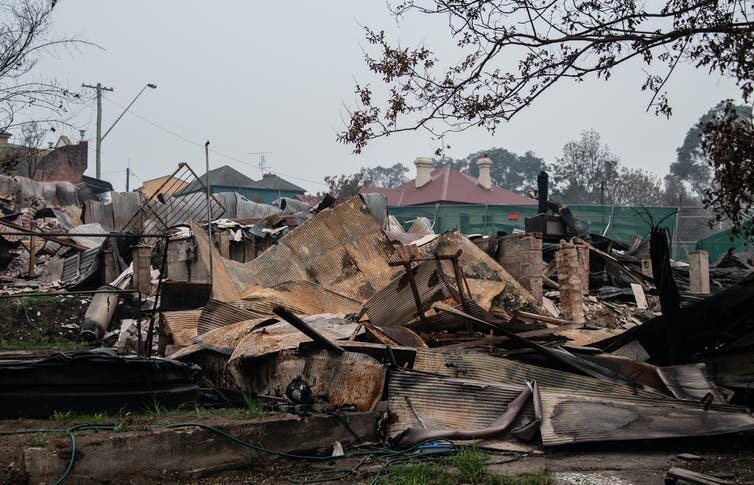
GCCW 2021-Virtual Program
GCCW 2021 was held from 18 to 24 October 2021. Highlights from 2021 GCCW were:
Website: A completely revamped website with new branding and greater functionality;
Blog: The establishment of a blog site on the revamped GCCW site;
Engagement: established linkages with key global higher education climate initiatives including Second Nature, EAUC, IUCA, and GUC-SDG13;
Events: A robust UTAS program featuring face-to-face and virtual workshops and presentations by staff and students including
Climate Change Leadership in a Volatile World
Approaching Collapse: Some Do's and Dont's
UTAS Emission Reduction Plans
Student Leadership for Climate Action Roundtable EfS-TAS:
Open Conversations about Local Implications of IPCC AR6.
UTAS School of ICT Forum on Sustainable Climate Action
Giving Future Generations a Voice
Screening of David Attenborough's A Life on our Planet.
Programs developed by other universities in Australia and internationally
Media: Local, national, and global media coverage, especially through the Conversation.
A brief evaluation report is available for downloading Here.
Details of virtual events held during 2021 are listed below
-

Climate Change Leadership in a Volatile World (Zoom Panel) (Completed)
North America: Tuesday, 12 October, 4.00 to 5:30 pm, EDT
United Kingdom: Tuesday, 12 October, 9:00 to 10.30 pm, BST
Australia: Wednesday, 13 October, 7.00 to 8.30 am, AEDT
Are universities and colleges fit for purpose in a world of growing climate extremes? What is academia doing to tackle the climate emergency and what more needs to be done? Are vice-chancellors and presidents going far enough and fast enough in a carbon-constrained world? Are deans and departmental heads embracing more holistic curricula or locked into defending disciplinary silos? Can any academic institution claim to be truly Sustainable?
Drawing together the top leaders of the world’s academic climate action initiatives, our virtual panel aims to inspire universities and colleges - and all those within them and their wider communities - to undertake more radical change faster. Targeting academics, students, professional staff, and alumni members, join us in early October to debate the existential issue of our time.
-

The Insurance Weathervane: What insurance tells us about climate, geopolitics, and society (Zoom Workshop)
North America: Monday, 18 October 5:00 to 7:00 pm, EDT
Australia: Tuesday, 19 October, 8:00 to 10:00 am, AEDT
If you have an academic interest in insurance, please join us as an audience member, and to participate in the discussion.
Participants:
Jessica Weinkle (University of North Carolina Wilmington), “Insurance for climate risk tells us about the business of climate change science”;
Leigh Johnson (University of Oregon), “Disciplining climate risk: The politics of sovereign disaster insurance and debt”;
Savannah Cox (University of California, Berkeley), “Who pulls the trigger? The geopolitics of insurance parametrics”;
Paula Jarzabkowski (University of Queensland), “Risk pools for low-income countries: Working through tensions to build rapid response to disaster”;
Antonia Settle (University of Melbourne), “Insurance and financial stress: Exploring underinsurance across the income spectrum”;
Travis Young (Penn State Univeristy), “After the storm: Lived experience of hurricane and flood recovery in Houston, Texas”;
Kate Booth (University of Tasmania), “What insurance tells us about everyday life in a changing climate”.
-

Approaching Collapse: Some Do's and Dont's
North America: Tuesday, 19 October, 8:00 to 9:30 pm, EDT
Australia: Wednesday, 20 October, 11:00 to 12:30 pm, AEDT
In this public forum, academics and activists from Australia and North America consider the very real possibility of climate and ecological collapse. Infinite growth on a finite planet has pushed the planet into crisis, and these speakers tackle the difficult questions and taboo topics. They burst the fantasy of sustainability based on clean energy transition and argue for equitable approaches to global population. Pathways forward include a deliberate contraction of the human enterprise and a planned collapse.
Academics and activists from Australia and North America consider the very real possibility of climate collapse.
Presenter(s):
Dr Kate Booth, University of Tasmania
Professor William E Rees, University of British Columbia
Megan Seibert, The REAL Green New Deal
Tristan Sykes, Just Collapse
-
Sustainable Nutrition | Conversation Cafe
North America: Wednesday, 20 October, 1:00 to 2.00 pm (EDT).
Australia: Thursday, 21 October, 4:00 to 5:00 am (AEDT).
Medical University of South Carolina Sustainability will host a virtual Conversation Café event with two speakers on the topic of sustainable nutrition.
The food we consume greatly affects our climate, from belching cows increasing CO2 levels to deforestation for farmland preventing CO2 absorption.
Everyone is invited to learn more about sustainable nutrition on Teams.
-

Discerning the influence of climate variability modes, regional weather features and time series persistence on streamflow using Bayesian networks (Seminar)
Australia: Friday, 22 October, 2:00 to 3:00 pm (AEDT)
Speaker: Dr Bryson Bates of CSIRO and University of Western Australia
Abstract - The influence of climate variability modes such as El Niño and the Interdecadal Pacific Oscillation on streamflow has been the subject of ongoing research since at least the 1990s. The usual approaches to this problem have been simple and do not fully address its complexity, which involves the individual and joint effects of climate modes and weather features on streamflow and the presence of persistence in their time series. In this talk, Bayesian networks are used to assess the influence of climate variability modes, atmospheric conditions at local- to regional scales and their persistence on streamflow. A major motivation is to build on current understanding rather than making streamflow predictions. Eight case studies in eastern Australia are used to illustrate the method and the insights obtained thus far will be discussed.
Bryson is a CSIRO Honorary Fellow and currently holds Adjunct Professorships at the University of Western Australia and the University of Adelaide. Prior to retirement he was a Chief Research Scientist with CSIRO Oceans and Atmosphere. Bryson was the Director of CSIRO’s Climate Program from 2004 to 2006, and a Theme Leader for CSIRO’s Climate Adaptation Flagship from 2008 to 2013. He was a lead author for the second, third and fourth IPCC reports, and co-editor of the IPCC special report on Climate Change and Water 2008. He is a co-recipient of the Noble Peace Prize 2007 and the Engineers Australia President’s Prize for the Australian Rainfall and Runoff Guidelines in 2019. Bryson is Fellow of the Institution of Engineers Australia and a recipient of the International Leadership Award, University of Newcastle Alumni Association 2017. His current research interests are focused mainly on the influence that climate and weather exert on surface water yield and lightning-ignited bushfires.


